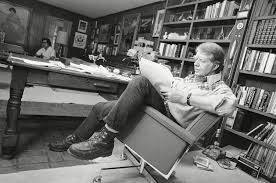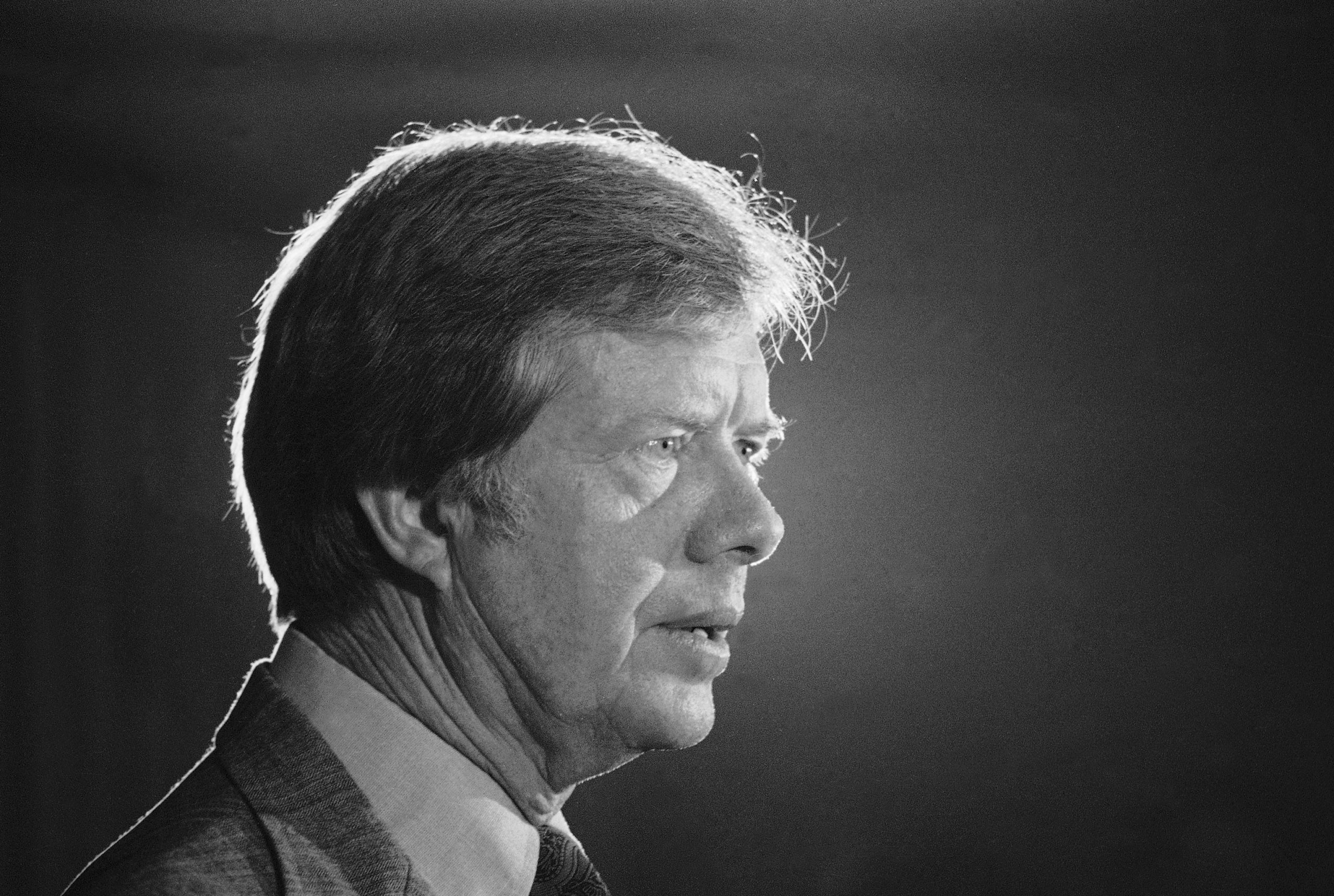Turn the clock back by 42 years, and you would have seen the USA this week struggling in the turmoil of a debate that gripped the nation.
America’s relationship with cannabis has always been an uneasy one. In the 1960s it came to represent the free movements of California which so enchantingly captured the imagination of its youth from coast to coast. Yet, on the other side of the scales, the weightier suited bureaucrats would often dictate the script.
So when, in August 1977, President Jimmy Carter tabled the idea that possession of an ounce of marijuana should be deemed legal, the scene was set for a long-running drama that would continue to be played out to this day.
Even by the seventies, the USA was, in many officials’ eyes, still recovering from the Second World War. The need to get the country back on its feet was paramount, and the distraction of allowing a nation to suddenly start getting high with the enduring blessing of Capitol Hill was almost unthinkable to just about every senator in the land.
Despite being the spark that lit many fires of free thinking and peace movements synonymous with marijuana, the Vietnam War had pulled the rug from under the feet of those keen to see the prospect of legalisation become a talking point in the corridors of the White House.
However, once again, the powers-that-be felt their endeavours in an unpopular conflict which claimed 58,000 American lives gave cause to recalibrate an entire nation. It was a time for conservative minds, not liberalism – something Carter’s predecessor, Gerald Ford Jnr, had embodied.
New thinking
With the shortest presidential term in history (barring assassinations), Ford made way for a new wave of thinking and a will to reflect the desires of the American people.
Up stepped 52-year-old James Earl Carter Jnr – the 39th President of the United States of America.
Jimmy Carter had an uncanny sense for knowing what America was.
He’d grown up in Georgia where his family owned a local store, and he graduated from US Naval College where he had developed powerful views about the US nuclear programme. His understanding of racial tolerance and the civil rights movement was considered almost radical and certainly ahead of its time.
It was this keen sense of capturing the spirit of the moment that drove Carter to push for legalising the possession of small amount of cannabis.
In August 1977 he tabled a motion that would allow people to have an ounce of marijuana for their personal use.
The response in the press, as it was on the streets, was mixed. Newspapers branded it “Carter’s pot plan” and senators labelled the idea as “the beginning of the end” while the free thinkers who had bookended the seventies embraced it as a long overdue change.
Groundswell
That moment, 42 years ago this week, triggered a groundswell that came astonishingly close to carrying the idea of legalisation of cannabis on its back until it became a reality.
The high-tide mark of that movement came later in the year during an elaborate Christmas party hosted by the National Organization for the Reform of Marijuana Laws (NORML).
It was a party with an intriguing guest list.
As well as NORML founder Keith Stroup and society journalist Hunter S Thompson, one of the attendees happened to be the British-born academic and Vietnam veteran Peter Bourne. Bourne was an outstanding thinker – the brains behind many of Carter’s idealistic schemes – and also the administration’s drugs tsar.
Bourne was a fairly radical-thinking libertarian who believed in freedom of choice, freedom of speech and, most importantly in this narrative – the freedom for people to choose what they took to feel good.
Marijuana, for Bourne, was something the American people should and could embrace.
Clinical approach
That was his private image. It was a far cry from the public persona as a reformer and stiff upper lipped Brit who had served the American military with the typical clinical approach expected from a well-educated Englishman.
Up until this point, the party guests had known only Bourne’s public identity. As the drugs began to flow there was some surprise amid the gathering when Bourne helped himself to a curious twist-cap cocaine dispenser, casually taking a couple of hits.
Hunter S Thompson, the godfather of gonzo journalism, had only one response.
“My God, man, we’ll all be indicted!” he was said to have shouted.
His prediction wasn’t too far off target. Thompson kept his silence, but the untrustworthy Stroup was quick to leak the story to several journalists who had a field day at Bourne’s expense.
It’s understood Stroup had been motivated by Jimmy Carter’s use of the chemical paraquat on Mexican cannabis farms.
Bourne later denied taking the drug, but the episode had many witnesses who were quick to confirm it happened.
Indiscretion
As it was, Bourne’s denial of the indiscretion was enough to carry him through, briefly. But it had already set some sinister cogs to work.
Shortly after, he had been caught writing a methaqualone prescription under a false name for a member of staff. Although seemingly minor, it stirred more of a scandal than the cocaine party.
It forced Bourne’s hand, and he was left with no option other than to tender his resignation in June 1978. He then went on to become a UN official before retiring to Oxford where he still lectures at his beloved university.
It seems odd that a reforming bit-part player could be such a decisive character in Carter’s plans for the legalisation of marijuana, but it was a big enough nail for the coffin.
Bourne’s departure cast a shadow over the suggested new drug policies during a period when Carter’s once-popular presidency was beginning to struggle.

America very quickly lost its appetite for relaxing marijuana possession laws, just as Jimmy Carter’s refreshing new approach to US politics had run out of momentum.
Conservative politicians, guardian groups and law enforcement institutions were swift to round on the beleaguered president. His and Bourne’s ideas for decriminalisation became the targets for the opposition to shoot down.
Gateway drug
Seeing cannabis as a gateway drug to more serious narcotics, Congress overwhelmingly turned against Carter who was also coming under increasing pressure from former Hollywood star and presidential candidate Ronald Reagan.
Reagan would put the boot into his rival on his weekly radio show where he often branded the president soft on cannabis as the actor-turned-politician seized his own opportunity to gain momentum by calling for tougher laws on marijuana.
In 1980, by the time Carter dragged himself to one of the most unsuccessful re-election campaigns in history, the very thought of legalising of cannabis was dead and buried.
It wasn’t until 2015 when, under President Barrack Obama, that America once again wanted to take the issue of cannabis decriminalisation seriously.
That movement now has the momentum which Jimmy Carter and his sidekick Peter Bourne had only dreamt of.
Even now, the prospect of total legalisation across the USA seems a whimsical distant thought.
But try to imagine where that movement would be now if, back in the seventies, it hadn’t stalled on the spikes of political misfortune.
Everything America is currently experiencing right now on the issue of marijuana could easily have begun this week, 42 long years ago.
Canada ready to overturn possession convictions… https://thenaturalhalo.com/canada-ready-to-overturn-possession-convictions/


